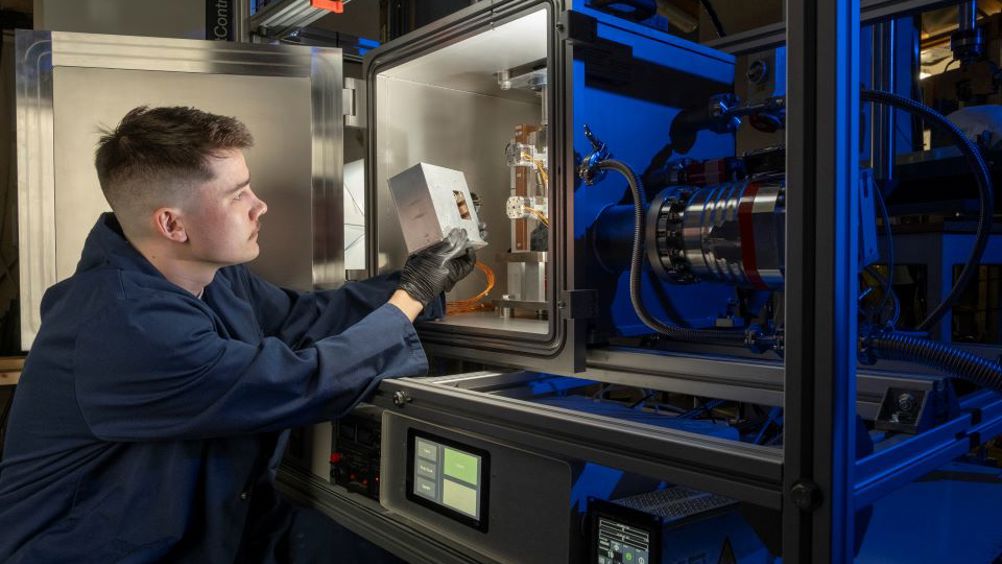NextSpace Testrig to derisk 3D-printing in space
Glasgow University researchers have built NextSpace Testrig, a world first facility for testing the structural integrity of materials 3D-printed in space.

The NextSpace Testrig was developed by the University’s Dr Gilles Bailet in partnership with The Manufacturing Technology Centre, supported by £253,000 in funding from the UK Space Agency’s Enabling Technology Programme.
Designed to support the developing field of space manufacturing, the facility uses a vacuum chamber capable of generating temperatures between -150°C and +250°C to create space-like conditions on Earth. Its magazine system can autonomously test multiple samples in a single cycle, applying up to 20kN of force to break samples and analyse their properties in vacuum conditions.
Made in Space
Space manufacturing aims to transform how objects and materials are sent into orbit. Several experiments have already sent prototype 3D printers into orbit and metal parts have been 3D-printed by astronauts aboard the International Space Station.
Until now, no research facility has been dedicated to ensuring that polymers, ceramics and metals printed in orbit will be able to withstand the extreme physical strains they will face in space.
Register now to continue reading
Thanks for visiting The Engineer. You’ve now reached your monthly limit of news stories. Register for free to unlock unlimited access to all of our news coverage, as well as premium content including opinion, in-depth features and special reports.
Benefits of registering
-
In-depth insights and coverage of key emerging trends
-
Unrestricted access to special reports throughout the year
-
Daily technology news delivered straight to your inbox










CCC Report Finds UK Climate Targets Still Within Reach
In 1990 67% of the UK´s electricity came from coal-fired power stations and even without renewables the transition to gas was a major contributor to...